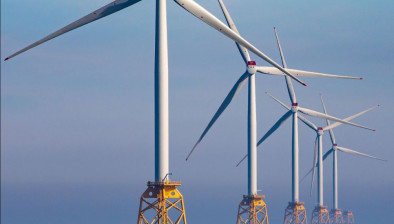Study to establish potential jobs and supply chain growth from floating wind farms

The potential economic benefits of developing more floating wind projects in Scotland is to be examined in a new study led by Crown Estate Scotland (CES).
The public body, which manages seabed leasing and passes revenue profits to the Scottish Government, hopes the findings of the £50,000 research project by Offshore Renewable Energy Catapult will pave the way for policy decisions by UK ministers to support growth of the emerging sector.
It follows the world’s first floating wind farm, Hywind Scotland, located off the north-east of Scotland, which started to produce energy in October 2017.
The floating wind industry is currently at an early stage of development – but may have significant potential for Scottish companies. There are currently a further two test and demonstration scale projects with planning consent from Marine Scotland and seabed rights from CES.
According to CES, taking a lead in its development would see a range of new jobs created in Scotland and expertise exported to other countries.
Sian Wilson, senior development manager at Crown Estate Scotland, said: “We want to find out the scale of the economic benefits – jobs, supply chain and exports – from growing the Scottish floating wind industry. The results of this study will help UK government and others take policy decisions on how to support development.
“As the low carbon economy grows and the world needs more clean, green energy, there is potentially a great opportunity for Scotland and the wider UK in ensuring we make the most of our competitive advantage.”
Head of insights Gavin Smart, who is leading the study for ORE Catapult added: “Innovations in turbine foundations and the development of floating wind technologies are key to opening up enormous new wind resources in expanses of water too deep for conventional, bottom-fixed farms. This, in turn, creates huge economic opportunities for Scottish companies to capitalise on this emerging market, both here in Scotland and through the export of skills and technologies globally.
“ORE Catapult has a strong track record in floating wind research, and is actively involved in a number of international collaborative projects designed to drive the technology forward, and so we are well placed to carry out this study on behalf of Crown Estate Scotland.”
The study will look in detail at different scenarios based on different scales of development and potential UK content, how government policy may impact it and the different economic outcomes of the scenarios. It is expected to be finalised and published in summer 2018.
















